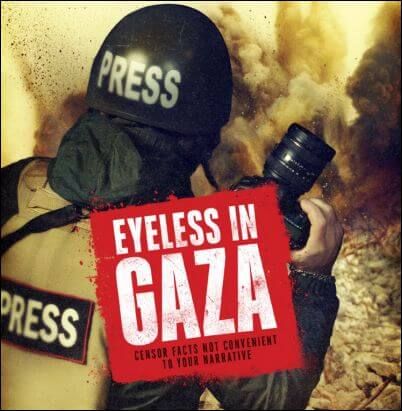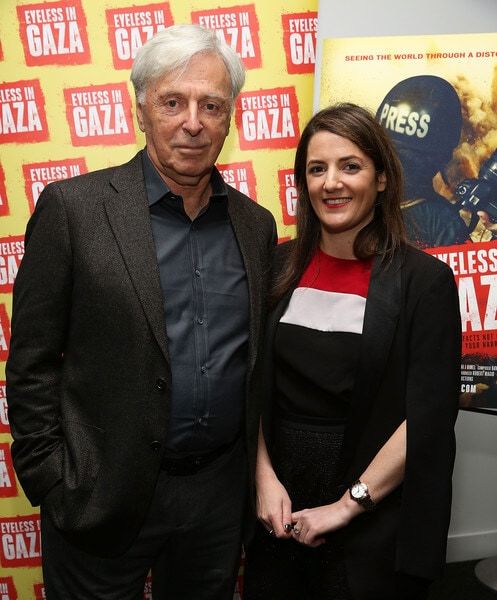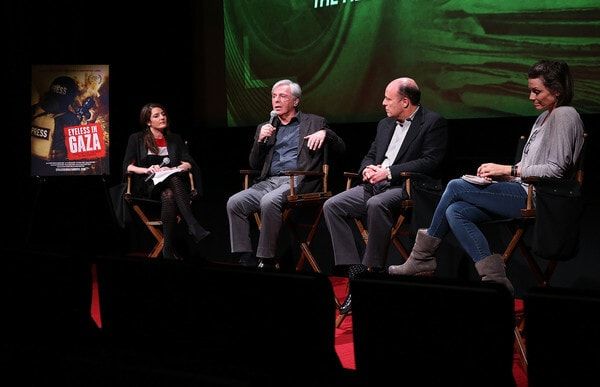Eyeless in Gaza is an award-winning documentary that follows journalists who covered the 2014 Gaza conflict, exposing the biased narrative told by international media through authentic footage and interviews with journalists willing to acknowledge the real story behind the stories.

“They’re calling it a massacre.” “Children and civilians comprised the vast majority of the 200 killed.” “Israel is targeting… hospitals.” These quotes come directly from international media reports on the 2014 Gaza War. All of them are incorrect, yet they were used to create the narrative that the world, to a great extent, accepted. A narrative that saw Israel as the aggressor. Interviewing Israeli and Palestinian combatants, administrators and civilians, along with analysts, journalists and aid agency officials on the ground, Eyeless in Gaza sets out to find out how this narrative arose… and arrives at a very troubling conclusion.

HonestReporting has been at the forefront of addressing the distorted media coverage of the Gaza conflict and anti-Israel media bias more generally. So it was a natural fit for our New York office to partner with Eyeless in Gaza’s producer Robert Magid for a series of pre-release screenings in the New York City area.
Two events took place in February, where, following the screenings, Magid was joined for a panel discussion and analysis of the film moderated by HonestReporting’s East Coast Development Director Julie Hazan. Panelists included former CNN Mideast correspondent Linda Scherzer, film critic and journalist Alison Bailes, producer and Jewish community leader Morris S. Levy, and Professor Paul Glader, a former Wall Street Journal reporter and head of the journalism program at The King’s College in New York City where one of the screenings took place.
The movie emphasizes the Hamas intimidation of journalists. It acknowledges that the terrorist group has strong-armed journalists in Gaza, ensuring that the Palestinian narrative is the dominant one for the Western media. Hamas intimidates, pressures, and keeps journalists in Gaza under surveillance to a point that they will be, and they have been, expelled from the territory during the conflict for not following the Hamas line.
Julie Hazan asks:
How would a news outlet deal with the ethical issues of journalists in fear for their lives, or their own safety, in conflict and war reporting when dealing with a terrorist organization? These can be life or death issues for all involved.
I believe the media could have handled the 2014 Gaza conflict differently instead of determining who was right and who was wrong. Media consumers want more than a simple good and bad narrative. They care about the truth.
This film is an accurate, well-documented portrayal of how the media cover stories in Israel and the region, and how Israel is indeed held to a double standard because of its Jewish and democratic identity.
Eighty students and scholars at The Kings College were invited by HonestReporting and the Philos Project, not only to see Eyeless in Gaza but also to learn more about media bias against Israel and the work that HonestReporting does to address this.
Former CNN correspondent Linda Scherzer adds:
The conversation about media coverage is something I have been having with the American Jewish community for the last twenty years. I mean it when I say that I usually direct audiences to HonestReporting when they want to channel their frustrations into activism.
The opening of HonestReporting’s New York City office last year promises more events and activities in 2017 and further opportunities to connect with readers and supporters in the US East Coast and beyond.



